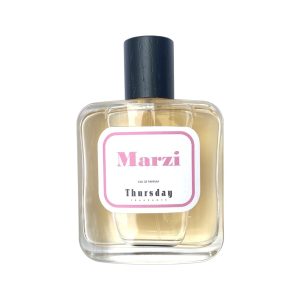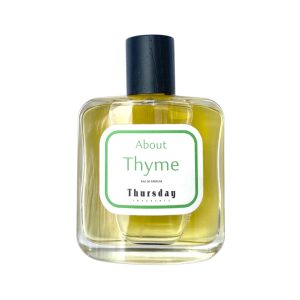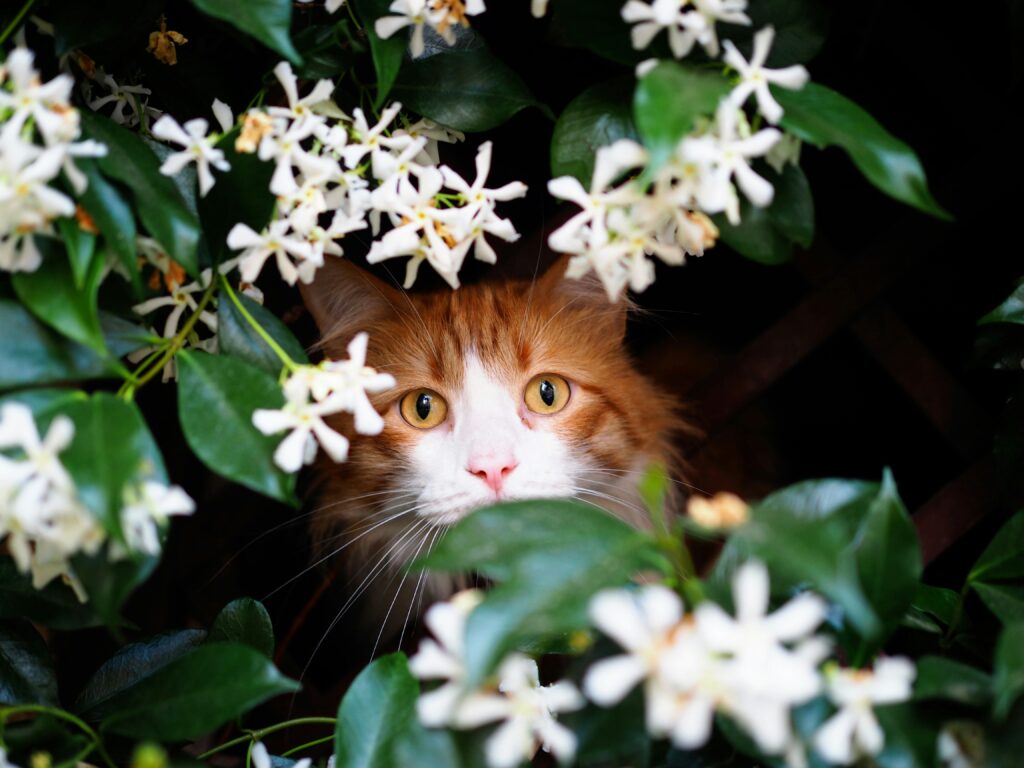
IYKYK right? And if you do know, you’ll have probably owned a cat at some point – or they’ve owned you. Ask this question to someone who has never spent quality time with a cat and they’ll most likely be horrified ‘… they don’t smell good!’
Of course, we’re not talking about the fishy breath or the aroma of litter tray. We’re talking about sticking your nose deep into their fur and taking a deep inhale, AKA cat huffing.
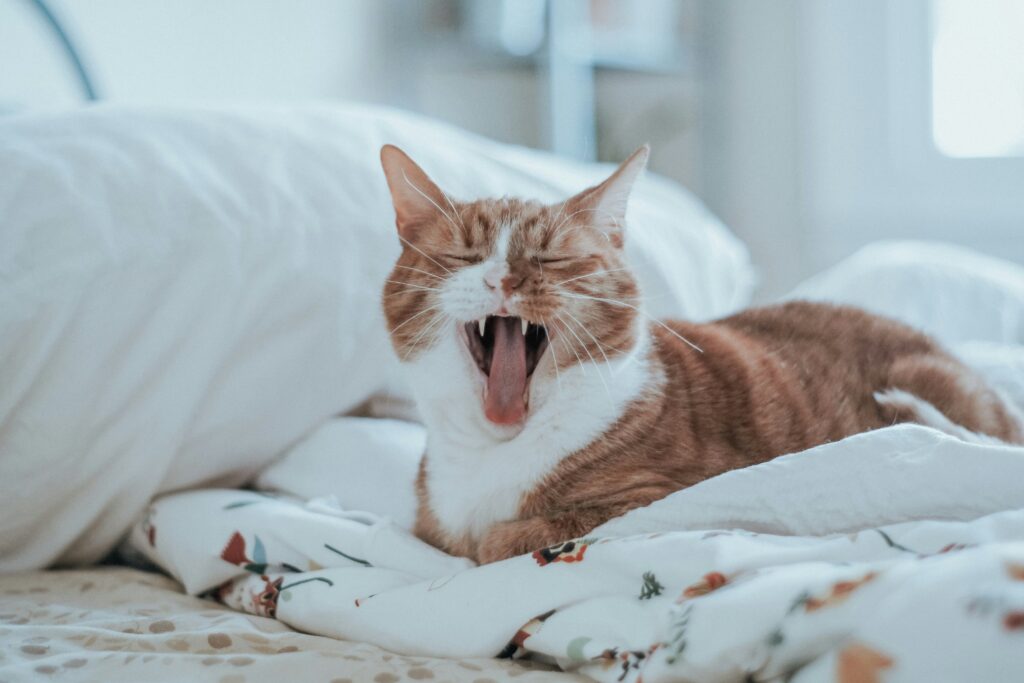
What do they smell like?
Many describe the scent as warm, slightly sweet, or even having hints of baked goods, fresh laundry, or ‘sunshine.’ But why do cats smell so good? The answer lies in a combination of biochemistry, grooming habits, and environmental factors.
1. Natural oils
Cats have sebaceous glands concentrated around their face, ears, and base of the tail. These glands produce an oily secretion that helps maintain skin and fur health. This secretion contains lipids and pheromones that create a unique scent signature. Unlike dogs, whose sebaceous oils can develop a strong odour, cats have a milder, less volatile composition, contributing to their pleasant smell.
2. Cat chem
Cats spend up to 50% of their waking hours grooming, coating their fur with saliva, which is what makes it so surprising that they smell good! But cat saliva contains antimicrobial proteins like lysozyme, which break down bacteria and reduce unpleasant odour formation. The slight enzymatic activity in their saliva can contribute to a clean, neutral scent. Plus, all that grooming activity distributes those natural oils, creating a subtle, warm fragrance.
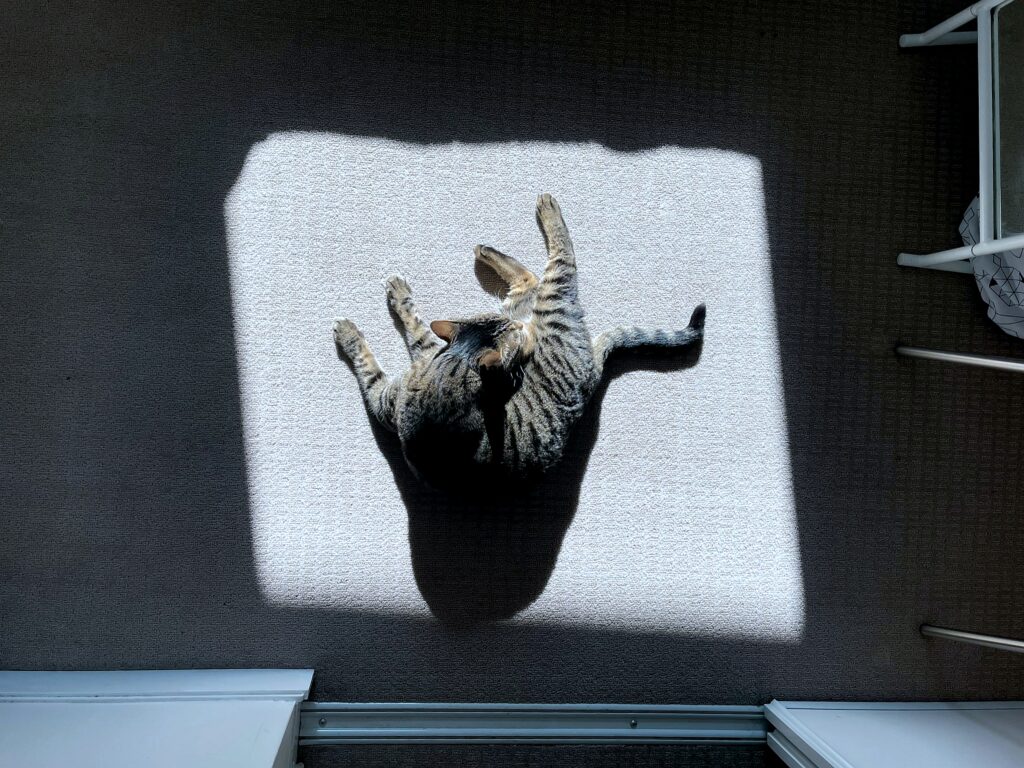
3. The sun-warmed fur effect
It’s no surprise that some owners think their cat smells like ‘sunshine.’ Cats are little heat-seekers, if there is a sliver of sunshine – they’ll be in it. So, there’s already a mental association forming between cats and sunshine. But it could also be because sunlight causes a mild photochemical reaction in the skin and fur, breaking down residual oils and amplifying natural scents. Keratin in the fur absorbs and radiates heat, which can create a warm, comforting smell reminiscent of sun-dried fabrics.
4. They find the best places to sleep
Cats, especially indoor ones, passively absorb environmental scents. Their fur can take on the smell of their surroundings, such as clean laundry (they do seem to make a beeline for that), their bedding, or even their human’s scent. Since cats tend to rest in warm, fabric-heavy areas, their fur often carries traces of comforting household smells.
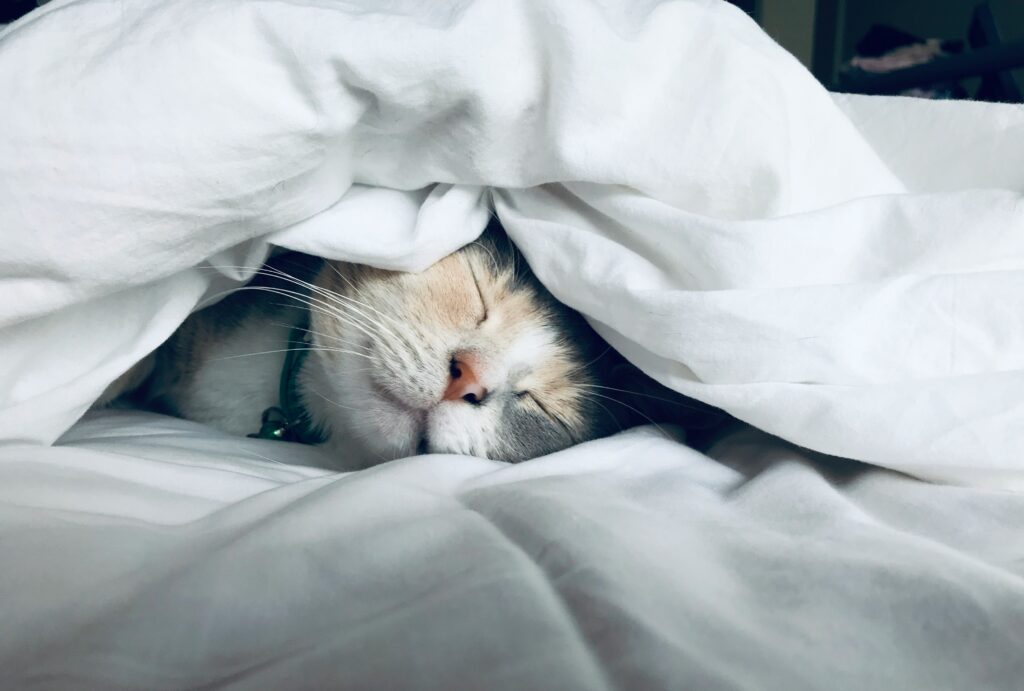
5. Love
Since scent is deeply linked to memory and emotion, a familiar scent of a much-loved pet may trigger positive neurological responses in the brain, reinforcing an association with comfort and affection. This makes perfect sense, but it’s only part of the story. Otherwise we’d all love the fishy breath smells too!
What do you think, do these explanations make sense to you? Or do you have another theory?
What smells do you love that might seem odd to other people? Let us know!


